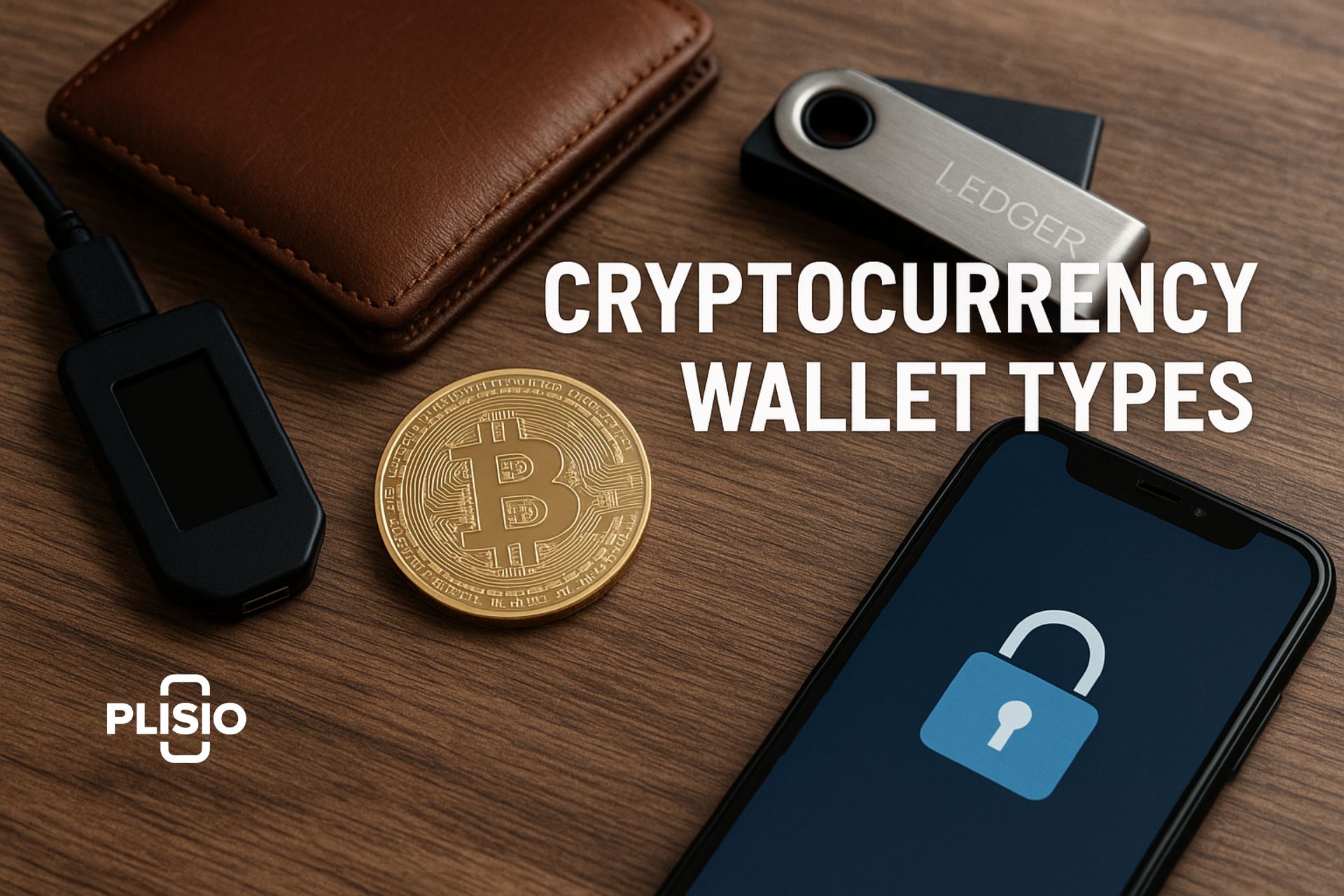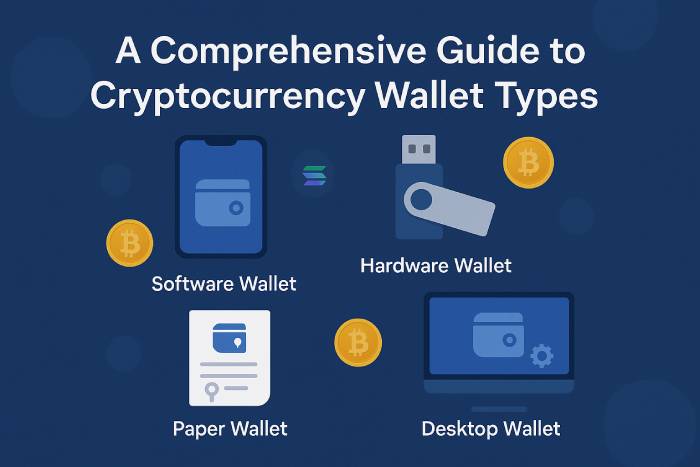The Rise of Crypto Wallets in 2026

Cryptocurrencies have evolved beyond being just an investment vehicle. Today, they represent technological innovation and financial autonomy in the digital age. As of 2025, over 420 million people worldwide own cryptocurrency, and the global crypto wallet market is projected to reach $3.2 billion, driven by the rising adoption of decentralized finance (DeFi) and blockchain-based applications. To truly realize the value of these digital assets, choosing a reliable crypto wallet is crucial. Wallets vary significantly in terms of security, accessibility, and intended use, making it essential to understand their characteristics for secure and efficient asset management.
Expert Insight: “As digital assets become mainstream, wallets are no longer optional — they are the cornerstone of personal financial sovereignty,” says Elena Markov, Blockchain Security Analyst at Ledger.

Software Wallets: Balancing Convenience and Accessibility
Software wallets are often the entry point for managing digital assets due to their ease of use and accessibility. These wallets come in the form of mobile apps, desktop programs, or web-based platforms and require an internet connection to function.
They are ideal for everyday transactions and quick access to funds, offering broad compatibility with various blockchain networks. Many users find software wallets particularly useful for managing altcoins. For example, wallets that support high-performance blockchains like Solana provide a secure and efficient environment for storing and managing assets with fast transaction speeds and low fees. Features such as intuitive interfaces, multi-chain support, and rapid processing enhance the user experience.
User Experience: Sarah M., a freelance designer, shares, "I use a software wallet daily to manage payments from international clients. It’s fast, and I love that I can switch between Ethereum and Solana without hassle."
However, the convenience of software wallets comes with certain security risks. Constant internet connectivity makes them vulnerable to cyber threats like hacking and phishing. According to a 2025 report by Chainalysis, over $1.5 billion in crypto was lost due to phishing attacks and malware in the past year alone. To mitigate these risks, it's essential to enable two-factor authentication (2FA), use strong passwords, and keep the software up to date. Additionally, securely storing your seed phrase offline is a vital step in protecting your assets.
Expert Insight: “Software wallets strike a good balance between usability and flexibility, but users must stay vigilant and practice good digital hygiene,” advises Raj Patel, CTO of CryptoShield.
Hardware Wallets: A High-Security Solution
Hardware wallets are physical devices, typically resembling USB drives, that store private keys offline, away from internet threats. This air-gapped approach significantly reduces the risk of exposure to hacking, phishing, and malware.
They support a wide range of assets, including Bitcoin, Ethereum, various altcoins, and even NFTs, making them an excellent choice for long-term holders. Some advanced models feature Bluetooth connectivity or touchscreens for added user convenience. Newer devices also support multiple blockchains simultaneously, catering to diversified investors.
Despite their security advantages, hardware wallets may be less convenient for users who frequently trade, as transactions require manual connection and confirmation. Still, for storing large amounts of crypto over the long term, hardware wallets remain one of the most trusted storage options. In fact, a 2025 survey by CryptoCompare found that 60% of long-term holders prefer hardware wallets for cold storage.
User Experience: Tom H., an early Bitcoin investor, notes, "I’ve been using a hardware wallet since 2017. It’s not the fastest, but I sleep well knowing my assets are safe offline."
Expert Insight: “When it comes to large sums or long-term storage, hardware wallets are the gold standard for crypto security,” states Camille Lohr, Lead Researcher at Bitwise Investments.
Paper Wallets: Security Through Simplicity
Paper wallets offer a completely offline storage method by printing or manually writing down public and private keys on paper. This eliminates the risk of online attacks, making them an attractive option for users seeking security without technical complexity.
However, physical vulnerability is a concern. Paper can be damaged by water, fire, tearing, or sunlight. To enhance durability, it's recommended to use waterproof, heat-resistant paper or engrave the keys on materials like titanium or steel. These methods ensure the keys remain intact even under extreme conditions.
Paper wallets are a simple yet highly secure way to store digital assets offline, especially appealing to users with limited technical knowledge. As of 2025, usage of paper wallets is declining, now representing less than 5% of crypto storage methods, mainly due to practical limitations.
User Tip: “I keep a paper wallet locked in a safe. It’s my backup in case everything else fails,” says Olivia D., a retired engineer and crypto hobbyist.
Desktop Wallets: Control and Flexibility
Desktop wallets are software programs installed on a personal computer, allowing users to retain full control over their digital assets. Unlike online wallets, all data is stored locally, reducing reliance on third-party servers.
However, the security of a desktop wallet depends heavily on the computer's protection against viruses and malware. If the system is compromised, private keys and seed phrases can be at risk.
To improve security, users should regularly back up their wallets, use trusted antivirus software, and store seed phrases offline. These precautions help maintain a secure environment for managing crypto assets.
Plisio Wallet: Simplified Crypto Management for All
Plisio offers a user-friendly and secure software wallet designed for individuals and businesses alike. With support for a wide variety of cryptocurrencies and a clean, intuitive interface, Plisio makes it easy to send, receive, and store digital assets. It integrates seamlessly with online stores and payment platforms, allowing merchants to accept crypto with minimal technical effort. Enhanced with built-in security features like two-factor authentication, Plisio is an ideal choice for users seeking both convenience and peace of mind in managing their crypto holdings. As of 2025, Plisio supports over 18 cryptocurrencies and is trusted by more than 250,000 businesses globally.
User Feedback: “I integrated Plisio with my Shopify store in less than an hour. It’s been a game changer for international customers,” says Daniel R., an e-commerce entrepreneur.
Expert Insight: “Plisio is rapidly becoming a go-to solution for small and medium-sized businesses looking to integrate crypto payments with ease and confidence,” says Dana Wexler, Fintech Advisor at BlockStart Labs.
Choosing the Right Wallet: What to Consider
A crypto wallet is a fundamental tool for managing and safeguarding digital assets. The best choice depends on your goals and priorities.
Key factors to consider include security, accessibility, and usage frequency. For long-term holding, hardware or paper wallets are ideal. For active trading or DeFi participation, software wallets offer the necessary flexibility. Regardless of the wallet type, always back up your seed phrase, enable 2FA, and conduct regular security checks to ensure maximum protection.
Pros and Cons of Each Wallet Type
|
Wallet Type |
Pros |
Cons |
|
Software Wallet |
Easy to use, fast access, compatible with many blockchains |
Internet-dependent, higher risk of cyberattacks |
|
Hardware Wallet |
Excellent security, supports many assets, great for long-term holding |
Less convenient for frequent transactions, requires physical device |
|
Paper Wallet |
Fully offline, immune to online attacks, simple to create |
Vulnerable to physical damage, easy to lose |
|
Desktop Wallet |
Full control, local storage, not reliant on third parties |
Security depends on device health, vulnerable to malware |
|
Plisio Wallet |
User-friendly, secure, supports businesses and multiple currencies |
Requires internet access, less suited for fully offline storage |
Conclusion
In 2025, choosing the right cryptocurrency wallet is more than a technical decision — it’s a step toward financial independence and digital resilience. With so many options available, from simple paper wallets to advanced multi-chain solutions like Plisio, users must align their wallet choice with their goals, habits, and risk tolerance. Whether you're a seasoned investor securing large holdings or a small business owner exploring crypto payments, the right wallet empowers you to engage confidently with the decentralized economy. As the crypto landscape continues to evolve, staying informed and secure remains the most valuable investment of all.

